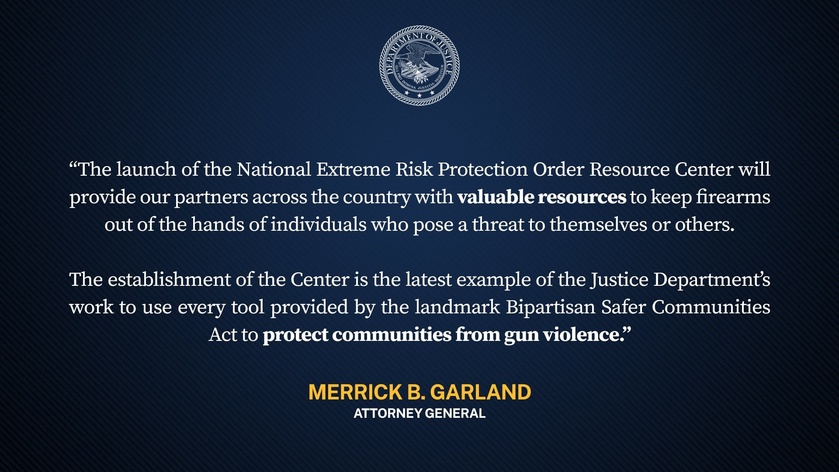WASHINGTON, D.C. - The Department of Justice has initiated the National Extreme Risk Protection Order (ERPO) Resource Center to equip various professionals, including law enforcement, legal practitioners, healthcare providers, and community organizations, with the necessary training and tools to enforce laws aimed at preventing individuals deemed dangerous from accessing firearms.
Attorney General Merrick B. Garland highlighted the significance of the Resource Center's establishment, noting its role in arming stakeholders nationwide with essential resources to curb gun violence by restricting firearm access to potentially dangerous individuals. This initiative is part of the Justice Department's ongoing efforts to safeguard communities under the landmark Bipartisan Safer Communities Act.
Support my independent journalism. I broke free from MSM for all of you. Now, I need your help to keep it going.
The question many people are posting on social media is why did the federal government unveil this program at 8 a.m. on a Saturday morning?
Critics of this say red flag laws and initiatives like the ERPO Resource Center for potentially violating due process and Second Amendment rights, constituting government overreach, and raising concerns about privacy and effectiveness.
According to a government news release, ERPO laws, akin to those for domestic violence protection, enable a civil mechanism through which law enforcement, families (in most states), and certain professionals (in some states) can request courts to temporarily bar individuals at risk of self-harm or endangering others from buying or owning guns.
A critic of this program wrote on Twitter (X)
And how are you going to determine if someone is a "risk?" Digging through their personal medical files? Base it on someone's word that could be lying?? If you don't like the person's politics??? I'm sure this system won't be abused at all..
The Center, through its website, will provide access to crucial data and resources to enhance the capabilities of stakeholders in reducing gun-related deaths. The platform will be regularly updated with new materials and highlight successful ERPO implementations and strategies to lessen gun violence.
Another critic on Twitter (X) wrote:
What is the reporting and vetting process? What is the criteria and who decides what is a risk and what is not? Who is a risk and who is not? Due process?
Currently, ERPO laws are in effect in 21 states and the District of Columbia. Effective ERPO execution demands an inclusive approach, engaging a broad spectrum of stakeholders, which the Center aims to support by offering relevant resources.





















